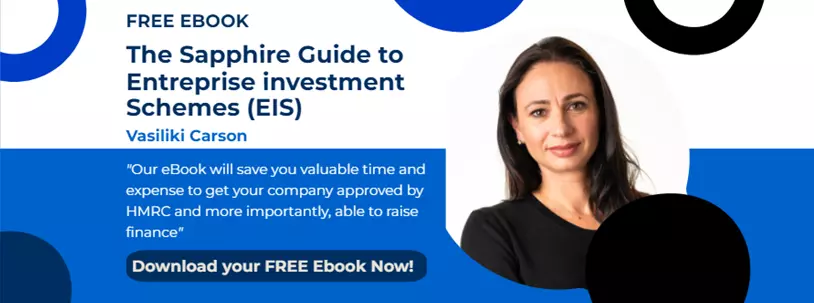|
Don’t invest unless you’re prepared to lose all your money. These are high-risk investments and you are unlikely to be protected if something goes wrong. Take 2 mins to learn more. |
FCA's PS23/16 on Sustainability Disclosure Requirements (SDR) released in November 2023 was partly influenced by the UK regulator now tasked with the secondary goal to promote the British economy and competitiveness globally, and to contribute towards attaining UK's target to reach net zero by 2050 through its policies.
Indeed, based on recent FCA surveys as well as the global assets under management in ESG oriented funds expected to reach $34 trillion, there is no doubt that all types of investors are looking to align their financial goals with looking after the future of the next generation 🌍👶🌻.
What is the SDR regime?
The policy is to ensure that financial products that claim ESG or sustainability, actually do as they say and can back it up. Currently it applies to products, either public or in the private equity space. The FCA is currently reviewing extending the regime to portfolios (e.g., SEIS/EIS funds) as well as to offshore funds and to pension products. It is important to note that the SDR maps to Europe's SFDR.
What is ESG or sustainability?
ESG, short for environmental, social, and governance, is a term that emerged a few years ago, giving rise to a new asset class that addresses these important areas. While the term "governance" may confuse some, it actually supports the other two goals. For more background about ESG please see my prior blog Why ESG matters to SEIS/EIS.
The term "sustainability" has gained wider usage, encompassing not only ESG but also companies that strive to have a lasting impact. Products falling under this category span a wide range of sectors, from clean energy and forest regeneration to waste management, social housing, and diversity, equity, and inclusion. Another trending term, impact investing, also relates to ESG and sustainability.
What does this mean for investors?
Starting from 31st July 2024, investment opportunities, both new and existing, that aim to make claims related to sustainability will be required to have one of four distinct labels. The specific label will depend on the type of sustainability investment claim being made.
Why is the FCA doing this?
As mentioned earlier, the introduction of this policy is in line with the FCA's new objectives outlined in the Financial Services and Markets Act 2023 (FSMA), to enhance the UK's economic competitiveness on a global scale. In addition, the policy aligns with the FCA's commitment to contribute towards the UK's target of achieving net zero emissions 🌏. Moreover, the policy acknowledges the FCA's role in assisting consumers in navigating the investment market, helping them better understand which products support the transition to a more sustainable economy.
What does this policy hope to achieve?
This policy is trying to address greenwashing and to ensure financial promotions are standardised and comparable. Consumers should feel empowered to make more informed decisions.
What are the SDR labels?
- Sustainability Impact ™: investing in solutions to problems affecting people or the planet to achieve real world impact.
- Sustainability Focus™: investing in assets suststainable for people and/or the planet.
- Sustainability Improvers ™: invests in assets with potential to improve environmental and/or social sustainability over time.
- Sustainability Mixed Goals ™: blended strategies investing across different sustainability objectives.
👉It is crucial to emphasise that these labels do not have a hierarchical structure but rather represent different strategic approaches.
👉Equally important to highlight is that a minimum threshold of 70% of assets under management must be met in order to qualify for any of these labels.
👉Furthermore, firms are required to define measurable sustainability objectives and establish clear Key Performance Indicators (KPIs) to track their progress towards these objectives. The ability to measure impact and the investor's contribution is essential for firms to substantiate their claims.
😈 Is this for real?
There is growing concern surrounding the potential for "green hushing"🔇🤐📴 as a result of this policy. "Green hushing" refers to the practice of companies and funds concealing their ESG credentials in order to avoid regulatory requirements and further scrutiny. This not only places a significant burden on investment managers in terms of compliance, but also raises the need for vigilance and awareness as we navigate the rapid democratization of financial markets.
In this modern world, where more and more individuals are turning to investing as a means of survival, it is imperative that we prioritise the importance of financial lives and recognise their significant impact.
Sapphire Capital Partners LLP is authorised and regulated by the Financial Conduct Authority (FRN: 565716). This article is a financial promotion and is intended for UK investors only. The content is for information purposes only and does not constitute investment advice or a recommendation to invest. SEIS and EIS tax reliefs depend on individual circumstances and may change. The value of investments may go down as well as up, and investors may not get back the full amount invested. Past performance is not a reliable indicator of future performance. Investment outcomes can differ substantially, potentially resulting in the loss of all your capital invested. Shares in early-stage companies are illiquid: you may be unable to sell your holding for several years, if at all. Investors should not rely on this article as a basis for investment decisions and must consider the illiquid and high-risk nature of early-stage investing. No warranty as to future outcome is implied nor should one be inferred. Tax treatment depends on individual circumstances and may be subject to change. Investments of this type are generally not covered by the Financial Services Compensation Scheme or the Financial Ombudsman Service if the underlying companies fail.



